Latest episode
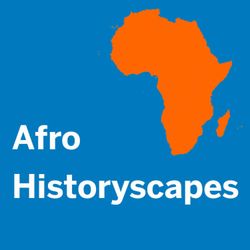
9. African Headrests: Technology and design in the past and the future
15:40||Ep. 9Join us this week for the final episode of the Afro Historyscapes podcast series. This week we are joined from Nairobi, Kenya by Community Researcher Yyvette Waweru. Yvette will discuss her research into African headrests - otherwise known as ‘dream machines’, an important example of African design and technology. Not only do headrests tell us so much about their function and aesthetics but also the people who use them. Yvette will also discuss how headrests have inspired her Afrofuturist film that explores how they might be used in the future. Objects we discuss 21.81https://www.horniman.ac.uk/object/21.81/2010.7 https://www.horniman.ac.uk/object/2010.72019.63https://www.horniman.ac.uk/object/2019.63/1972.119https://www.horniman.ac.uk/object/1972.119/2003.599https://www.horniman.ac.uk/object/2003.599/2013.156https://www.horniman.ac.uk/object/2013.156/2676 https://www.horniman.ac.uk/object/2676/Yvettes Video
More episodes
View all episodes
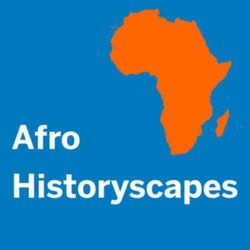
8. Igbo and Nigerian Crafting Practices
16:31||Ep. 8In this episode, we are joined by Community Action Researcher and Maker, Chinelo L. Njaka PhD. Chinelo will share with us her experience of carrying out research into the Horniman collections as part of the Community Action Research project. Her research takes a look at the presence - and absence - of Igbo and Nigerian craft technologies and what this can tell us about the creativity of Igbo peoples as well as colonial legacies. Chinelo used the incredible Nancy Stanfield collection held at the Horniman to help tell this story. Objects: 28.11.66/33 https://www.horniman.ac.uk/object/28.11.66/33Nancy Stanfield Collection - photographshttps://www.horniman.ac.uk/subject/subject-1388/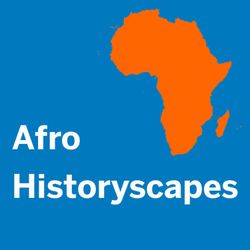
7. African Milk Technologies
20:08||Ep. 7In this episode we speak to Johanna Zetterstrom-Sharp, one of the Horniman's curators, about her recent interest in the colonial history of milk.We discuss Horniman collections relating to an incredible technology developed by pastoralist communities in Kenya and elsewhere in East and North Eastern Africa, to process milk, making it safe to drink. We explore how this mobile technology contrasts with European industrial milk practices which have dominated the global expansion of dairy.Milk offers a fascinating way into thinking about colonialism, technology and science, and who gets to decide what is useful and good for us, and what knowledge counts.Objects we discuss 1972.106https://www.horniman.ac.uk/object/1972.106/1972.82https://www.horniman.ac.uk/object/1972.82/ 1972.128https://www.horniman.ac.uk/object/1972.128/1990.544vihttps://www.horniman.ac.uk/object/1990.544vi/ ARC/BRA/002/029/019https://www.horniman.ac.uk/object/ARC/BRA/002/029/019/Read more about Roger Brainhttps://www.horniman.ac.uk/story/nigerian-independence-through-a-lens/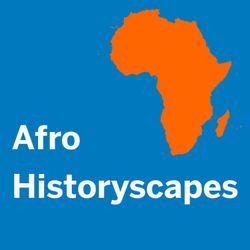
6. Ifá Divination - The Travelling Religion of the Yoruba peoples
26:25||Ep. 6In this episode we discuss the traditional Yoruba religion know as Ifá. This religious tradition forms the bedrock of Yoruba culture and spiritual life, where people, ancestors, and spirits interact through ritual and worship.We discuss with Community Action Researcher, Abiola Balogun, some of the main features of this religious tradition, how its rich material culture can take on a life of its own, and how it has travelled the world, inspiring music in Cuba.Objects we discuss 23.34https://www.horniman.ac.uk/object/23.34/6.12.65/546https://www.horniman.ac.uk/object/6.12.65/546/ Additional Material: Abiola’s videosThe Nigerian Collection of the Yoruba Traditional ReligionThe Journey of the Travelling ReligionMusic videoEleggua - Daymé Arocena - Cubafonía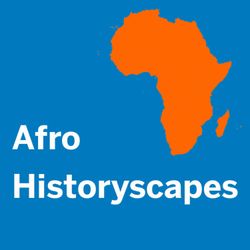
5. Another history of Christianity in Africa
39:38||Ep. 5The Horniman collections tell a very different story than is usually heard about Christianity in Africa.Find out about how Christianity was practised in Africa several centuries before the arrival of European missionaries, how Africans themselves have embraced, interpreted, and transformed the faith, and when Stormzy took 100,000 people to church at Glastonbury festival.Objects we discuss:nn17962https://www.horniman.ac.uk/object/nn17962/ 1973.268https://www.horniman.ac.uk/object/1973.268/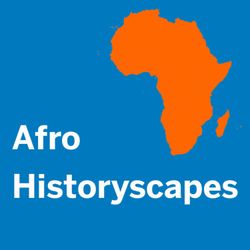
4. African Islamic Worlds: Trade, Spirits, and Art with Sabrina Al Sayed
20:57||Ep. 4In this episode we are joined by Community Action Researcher Sabrina Al-Sayed, where we explore the influence of Islam on Saharan trade routes.We discuss how the Kel-Tamashek peoples keep themselves safe from spirits known in Islam as Jinn, and how Islamic spirituality has been embraced and shaped by African people throughout history in the form of art.Objects we discuss2007.214https://www.horniman.ac.uk/object/2007.214/2007.158https://www.horniman.ac.uk/object/2007.158/nn3549https://www.horniman.ac.uk/object/nn3549/Jean Jenkins - Albumhttps://open.spotify.com/album/0TtJGwXqJpNEorkymW0lSW?si=LaS9dSKYRCmYjeH11RWm9Q&dl_branch=1
Community Action Researcher Sherry Davis (Special Episode)
28:02|Welcome to a special episode of Afro Historyscapes. In an interview hosted by Sherry Davis, a musician, filmmaker and community researcher, we spotlight the incredible work of Phillip Jimbi Katana, an archaeologist and heritage conservationist who has led the excavation and restoration of several monuments along the Kenyan coast. His prolific career has included spearheading a campaign to return the sacred Vigango artefacts back to the local Mijikenda community and converting the abandoned British East Africa Protectorate HQ into a museum. Read the transcript: https://cms.thehorniman.net/wp-content/uploads/2021/07/Sherry-Special-Episode-Transcript.docx